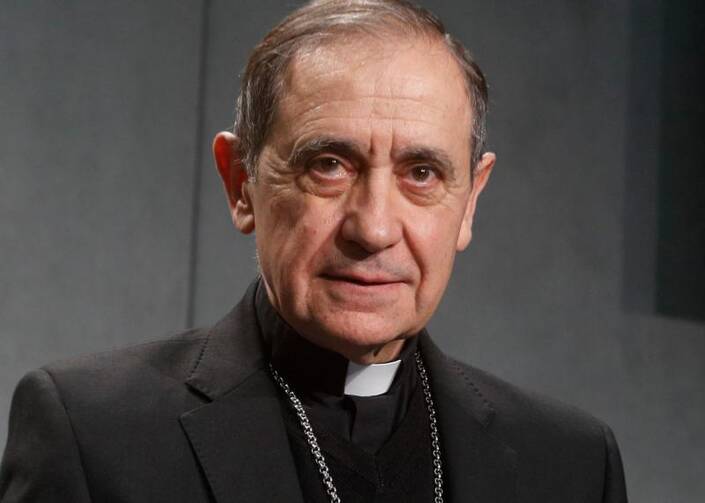VATICAN CITY (CNS) -- The Catholic Church has universal laws valid around the globe, but many of those laws -- including on handling allegations of abuse -- must be further refined on a local level to respond to national laws and cultures.
One of the biggest differences in church and state laws regards the obligation to report to police suspicions or knowledge about the sexual abuse of a minor.
Those differences are found even within the civil laws of individual countries; for example, Australia's yearslong Royal Commission investigation of institutional responses to child sex abuse recommended state laws be amended "to achieve national consistency."
In Australia, teachers, doctors, nurses and police are mandatory reporters in most states; the Royal Commission recommended that priests, psychologists and school counselors be added to the list.
Pope Francis' new universal Catholic law, "Vos estis lux mundi" ("You are the light of the world"), released in early May, says that every priest or member of a religious order who knows of a case of clerical sexual abuse of a minor or who has good reason to believe that such abuse took place must report that abuse to the bishop of the place where the abuse occurred; if the alleged abuser is a bishop, the report must be made to the metropolitan archbishop or the Vatican nuncio.
Bishop Juan Ignacio Arrieta, secretary of the Pontifical Council for Legislative Texts, told Catholic News Service that the Catholic Church also obliges all its members to act in accordance with local civil law on mandatory reporting.
However, it stops just short of requiring all allegations everywhere be reported to police.
Italian privacy laws, for example, he said, give the alleged victim or the family of a child allegedly abused the right to decide whether to report the case to the police. Someone outside the family who goes to the police could be accused of violating the victim's privacy.
Announcing new national guidelines in May, the Italian bishops said that if a family objects to reporting the case to police, the bishop must get the objection in writing.
However, Bishop Arrieta said, the allegation still must be reported to the local bishop, investigated and reported to the Vatican if the allegation appears credible after the initial review.
The universal law promulgated by the pope in May, he said, also emphasizes "moral obligations," particularly: "reporting; protecting and caring for the victim; protecting the person who reports -- this is very important, for example, if it is a seminarian and someone tries to harm him, that person can be punished under the law -- and respecting the law of the state."
The pope's new law explicitly states that the Catholic Church "must continue to learn from the bitter lessons of the past, looking with hope toward the future," Bishop Arrieta noted.
"Things have changed. It once was thought that one was doing good by acting a certain way," trying to limit the public scandal of abuse, he said. "Now it is clear that the real scandal is not punishing, the real scandal is not reacting" when a priest commits abuse.
The new law also clearly states that when doing the preliminary investigation of an abuse allegation, a metropolitan archbishop may seek the assistance of "qualified persons," whether they are clergy or laity.
"Qualified laypeople must be listened to not because they are laity, but because they are qualified -- for example, a mother or father could give good advice about certain things, or someone who has worked for the police can help with the investigation because he knows how to do it," Bishop Arrieta said.
In addition, the bishop said, a metropolitan archbishop may want the input and expertise of outside experts "for the sake of prudence, even if not strictly necessary, because he believes that in his diocese at this time it is important that the faithful see that he is operating transparently and honestly."











The Only reason today the Catholic church is trying to address the worldwide sex abuse scandals, is because the number of cases became so overwhelming they couldnt cover them up anymore!
That is a fact!